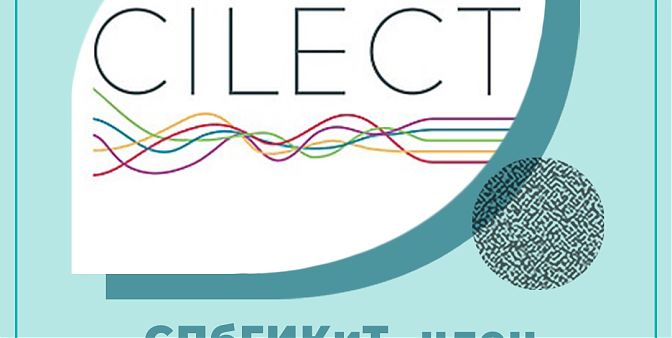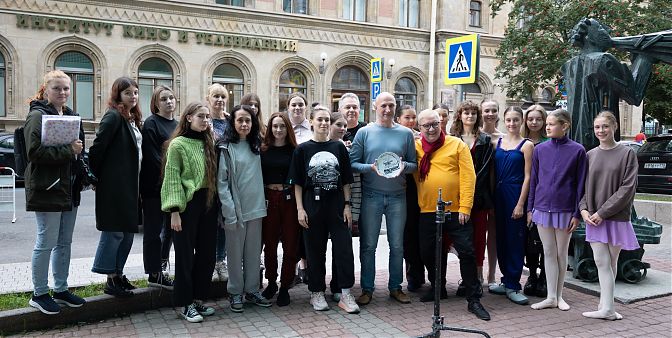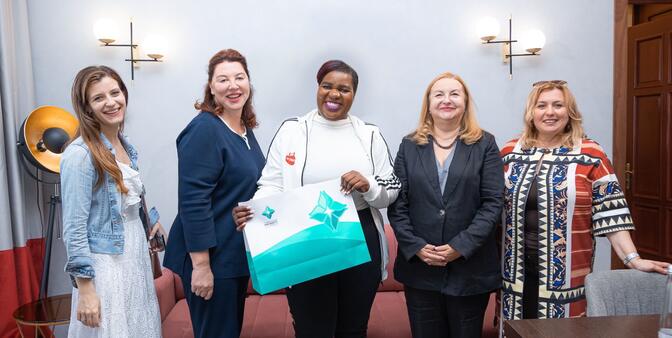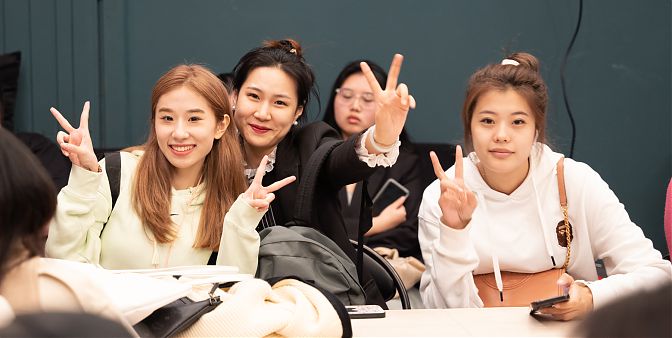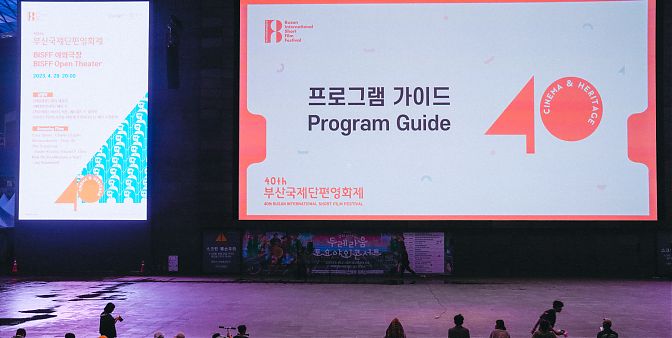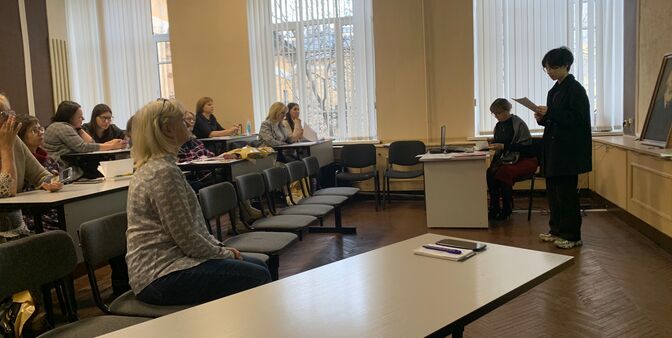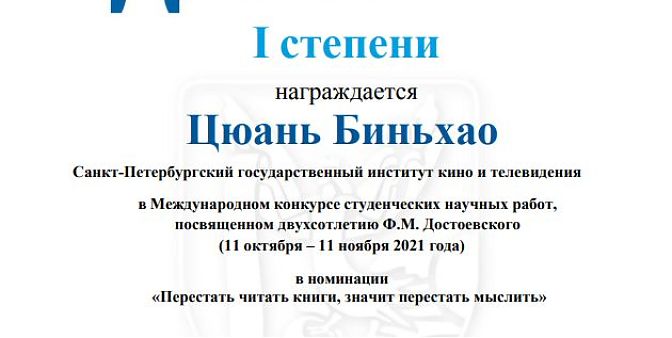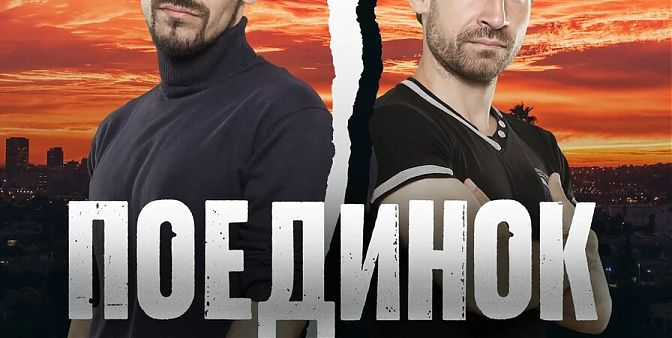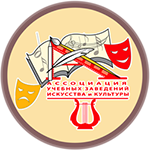04.03.2019
A day with leading international bodies, Partners of IBC: Students talk to key players
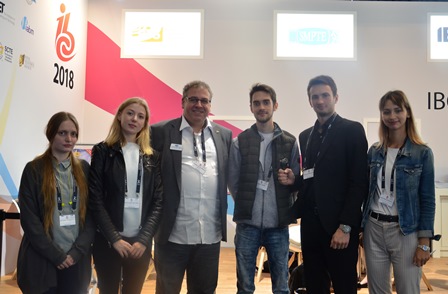
On September 13-18 the largest in Europe International Broadcasting Convention IBC2018 was held in Amsterdam (Netherlands). 15 halls with 1,700 exhibitors from 170 countries of all around the world, 400 professional speakers - all this turned out to be a reality for students from Russia, France, Germany and United Kingdom with the Bursaries from the IEEE BTS and the IABM Educational Foundation. First Bursaries from the IABM were introduced in 2002, when 2 students from Ravensbourne College in the U.K. were selected, and then were extended to four students for 2003 and 2004, when two pairs of students from Ravensbourne College, UK and St. Petersburg State University of Film and Television, Russia were selected. Then, IEEE BTS established its own bursary program. In 2018, 11 students from Russia, France, Germany and United Kingdom whose studies are related to broadcast engineering were granted and visited IBC2018 to enhance their knowledge and to improve their potential career value.
The broadcast industry is in times of constant technological changes in all aspects: convergence between broadcast, IT and telecoms changes the character of how video and audio content is created and consumed. These changing technologies and business models have placed extreme pressure on educational institutions, and as the result we can see significant technical skills shortages in the broadcast and media technology sector. Back to 2014 in the research conducted by IABM Educational Foundation multiple causes for this were founded, including a lack of investment in training, a perception that technical staff are undervalued by employers, more attractive career opportunities in other sectors, and a lack of clear career paths for technical staff. The future of the broadcast industry depends on who will be responsible for creating new technologies and making them work, and how those people are being educated and trained. Lots of questions have to be discussed from all sides: university professors, manufactures, broadcasters and students. The dialog is needed to build closer and enduring relationships between higher education institutes and manufactures. Educational and training institutions want to be sure that they are teaching the right subjects and equip students fully for what is coming. Manufactures want to ensure they have optimally trained technology staff to sustain their businesses into the future. Students need to know what personal and educational skills they must have to enter the industry and what opportunities they have.
The group of students from St.Petersburg (Russia) representatives of three Universities of the broadcast technology education area (St.Petersburg State University of Film and Television, Electrotechnical University «LETI», St. Petersburg National Research University of Information Technologies, Mechanics and Optics) forced the dialog between manufactures and students to be real. They spend a day at IBC2018 Partnership Pavilion to talk to executives of organizations, Partners of IBC (IABM, IEEE BTS, SCTE, SMPTE), asking them challenging questions and making Masters to think!
The student team from Russia recorded interviews with the President of the IEEE Broadcast Technology Society Bill Hayes, IABM Chief Executive Peter White, CEO of Royal Television Society Teresa Wise, Treasurer of the Society of Cable Telecommunications Engineers Chris Swiresand and Thomas Bause Mason, director of standards development of the Society for Motion Picture and Television Engineers. Masters and students were talking about main trends in the industry, very latest ideas, innovations and concept technologies, and, of course, about what professional skills new generation specialist must have to have a success entering to the industry.
Bill Hayes, Peter White, Teresa Wise, Chris Swiresand Thomas Bause Mason answered the student’s question: what professional skills will be in the highest importance and what future professional should look like according to their point of view.
If you are a student reading this article you have to listen intently to the Master’s replies.
Bill Hayes:
«You have to learn how to be a good communicator, but also be familiar with how computer networks work! In the early days engineers, broadcast specialists, were sitting somewhere in the corner and no one talked to them, when someone had a problem they just called, the engineer fixed the problem and then went to the corner again. The world has changed. Now you should not only have knowledge about the technology, but also haveyour ability to help non-technical people understand the technology.The closer the creative people get to actually holding the technology and interacting directly with the technology, the more comfortable way they need to understand the technologythat it doesn’t impede their ability to do their job and take advantages to tell the story. If you are the best technology person but nobody can talk to you that is a great detriment to you. The key skills understand the networks and being able people could talk to you and explaining to them».
Peter White:
«I think it is important to have a deep understanding of video and how it's done, obviously video and camera work, but also how to transport it in the new ways. Software engineering knowledge would be a skill set that would be very important particularly in our industry. The understanding of the cloud and understanding of how to remote produced content using IT technologies is very important».
Therese Wise:
«For our industry the talent pipeline is incredibly important to the people coming through. On the technology side there's a mint shortage of people who can do data analytics. Date analytics, people that can code, computer scientists, people interested in special effects, the other great areas are crossover skills. There is a shortage and in the UK we got a tremendous production boom, and we are known for post-production, so all those post-production skills are really important. Sound specialists, as well as production, editing, vision mixes, and then on the creative side really important area, but one where it's quite hard to get started, is brightest writers of scripted content».
Thomas Bause Mason:
«One of the problems broadcast has to deal with at the moment is a kind of a clash happening. In a broadcast facilities there are people who are very skilled in IT technologies or who are skilled in broadcast engineering, these are different ways of thinking, a different ways of building infrastructure, but they have to work together to create IP infrastructure. So the missing part is really hybrid broadcast IT engineer which knows both sides and knows how to implement IP infrastructure for broadcasters. Everything which falls into this kind of software development areas I think is very important for students to learn: software development, knowing your way around different programming languages, knowing the software development tools, also versioning systems where you store your software, you develop you software, continuous-integration».
Chris Swires:
«On the production side I suppose the traditional production skills are still applying. You got to be able to set up cameras and so on. An interesting aspect is that it is now possible to take video from iPad, iPhones and use that, and that's rather fascinating, because that changes things, especially for cameramen perhaps. As far as the technical skills go the programs have to be distributed. I've always been at that end of the business in my own life. So cable TV is interesting particularly over fiber optic. Broadband to the consumer is a very big area so that is scenario students should take an interest in».
The answers reflect different points of view on the future specialist should look like making the students think and allowing them to choose their own path to the industry. At the same time, it was interesting for students to know about the first steps that did leaders in their career. Each of them came to the industry from different sphere and with different background: technical, commercial, computer science. One of them even wanted to be a writer! Thomas Bause Mason began his career as a computer programmer for automation software, but also had a photography and video film as a hobby:
«At that point, I wasn't really aware that photography would be a trend in the industry. But I'll say it that helped me a lot to get into the position I'm in today. Personally for me to the most decisive decision was to make a step and leave Germany and go to the US to work in LA in the media. From there with my background in IT I quickly developed and was pulled into areas which were new, exciting and that also provided me with personal growth and then helps me to get into the position I'm in today».
For Bill Hayes technology was a hobby. When he was a child he bought a kits to build his own amplifier as many guys did at his time. As a teenager, he became enamoured with radio, worked at the college radio station and went on a scholarship to be a computer programmer. But at the same time, he took a writing course because he wanted to be a writer:
«I had a very good professor who said: “You know you have a gift for this”. I could only write comedies but he said that I could write very funny material and so I was encouraged. I tried to be a writer for a long time but it is the very tough field to get into, the competition was tremendous.I think my biggest mistake was I gave up too early. I think probably if I'd have stuck with it for a while longer I probably would have become a writer».
Failed in writing, the technology part of his mind kept him in media:
«I started engineering more seriously, started working more at radio stations and got opportunities to move into television. There was an opportunity where I would be challenged to learn things. I said I started out in onedirection in the industry and realized that the right way waswrongand I was moving to what I wanted to do and so I changed the direction but quite frankly. That's why I joined BTS, that's why I joined a lot of things that helped me. So I can get serious about technology. Once it became no longer my hobby or my way in the door and became my career».
Bill Hayes regrets about one thing and is happy about another one:
«So my biggest regret would be that I'd probably gave up of my writing too soon. But the thing I'm probably the happiest about is that I've never felt like I know enough! I'm always looking for new opportunities to learn, to be challenged! I'm happy that I still have that attitude».
Maybe the main and the most motivating parts of the dialogue for the students were the wishes the executives made at the end of the day. Based on his experience and a long way in the industry Bill Hayes said:
«Never stop learning!» The other thing that he mentioned: «Don't give up and keep the passion! If you lose your passion for what you're doing, it becomes a job, and we always get bored with jobs. Keep your passion and never put on blinders. Don't stop looking to the left and to the right, because what you can see it's amazing and can capture your imagination and take you in that direction, what you'll accomplish. I've been in this business now for the better part of 50 years. That's a long time! It would be terrible if it was just a job! It's something I'm still passionate about! I want to be able to say that I'm interested in VR as I was in Stereo or as I was in color or as I was in 3D or an HD. I want to be fully involved in that, because to me it's fascinating staff. I hope you see I love what I do».
Executives of IABM, RTS, SCTE and SMPTE made a wish for the students too.
Peter White:
«Hopefully every single student has come on our program find something here that they are really passionate about and they can find a role in the industry. I would hope that they would keep the passion and drive that they bring into the industry. We need that to really drive our industry forward. And be imaginative and be passionate about what you do and I think that it would change everything in the industry».
Therese Wise:
«The important thing for our industry is to have a diversity of talent. The second thing is for the young people themselves to take booty of what's possible in the industry and different ways to get in. My final advice is to understand finance, because whether you're a freelance, whether you are working in the industry, you need to understand what commercial business model is. You have to understand how to make money and conserve money in the industry. Absolutely everything ultimately people do, they do because it's funded».
Thomas Bause Mason:
«The message I will sent to students is take risks, don't be afraid of change and you have to go out there and get it for yourself. Nobody will come and say there is your Dream Job. So you have to make that happen for yourself.Take your time to find area what you like and try to grow in that area. Don't be afraid to do the step. Everything starts with one step. Do that step and don't hesitate! If something fails, it fails, just try something else!»
Chris Swires:
«Generally there are so many routes that you have to try. Have a broad mind when you're looking around and try and decide what you want to do you. One of the things that I learned, when you are growing up you don’t really know what you want to do. Only when you have some experience of doing things then you can say this is the area I enjoy doing. Get around as much as you can, talk to as many people as you can. Don't be afraid to renew your knowledge. When you are trained you will be a lot more efficient and you will be progressed well».
Not only students have questions about what the engineer of the future will be tackling and what he can achieve, what are the variety of roles, challenges and opportunities available for the future engineer. Manufactures, broadcasters and IBC Partners, representing both exhibitors and visitors, have also questions to students: What do student or young people need? What are the balls that are preventing students from moving forward, because things have changed? What can they do to help students, so that the student can see the value of being a member of the society, part of the industry? Students from St.Petersburg involving to the dialogue promised to think about the answers. Maybe some of the answers can be found in the reports of students about their visit to IBC2018 and Amsterdam.
Evgenia Grinenko, PhD
Senior manager of International Relations Office,
Assistant Professor of Department of Television
St.Petersburg University of Film and Television,
St.Petersburg, Russia



